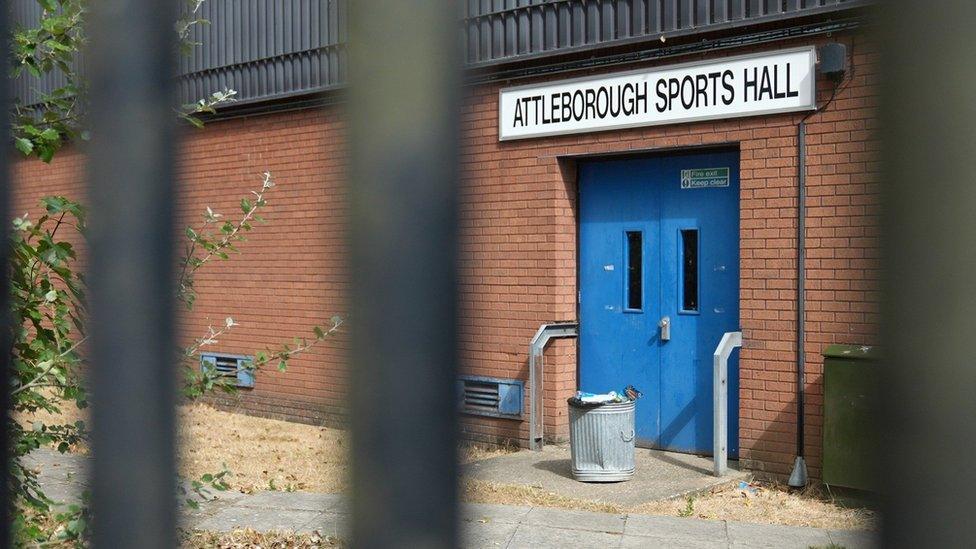Levelling up failing in the North East, study finds
- Published
- comments

Northumbria University academics say the levelling up programme is yet to make a difference in the North East
The government's levelling up programme is failing in the North East, an academic study has claimed.
The policy, aimed at tackling inequality in the UK, is still little more than "a slogan" according to the Northumbria University report, external.
Of 12 missions for 2030, external, only reducing crime is "on track" while six are "off track" and five "too early to tell".
The government said it was "making progress" with the region having the second highest grant rate in England.
Report leaders Professors Joyce Liddle and John Shutt from the university's Newcastle Business School said it was "still not clear what levelling up means", three years after it was announced as a flagship policy of Boris Johnson's government.
As part of the programme, four funds were set up for local authorities to apply for grants from.
The academics said there was a "major problem" with local councils lacking the resources to apply for funds or organise projects having faced a 31% cut in staffing since 2010 due to austerity measures.
"With a revolving door of competitive bidding funds, local authorities are placed in a difficult position to prioritise and bid for funds," the authors found.
"Preparing such bids is hugely time-consuming."
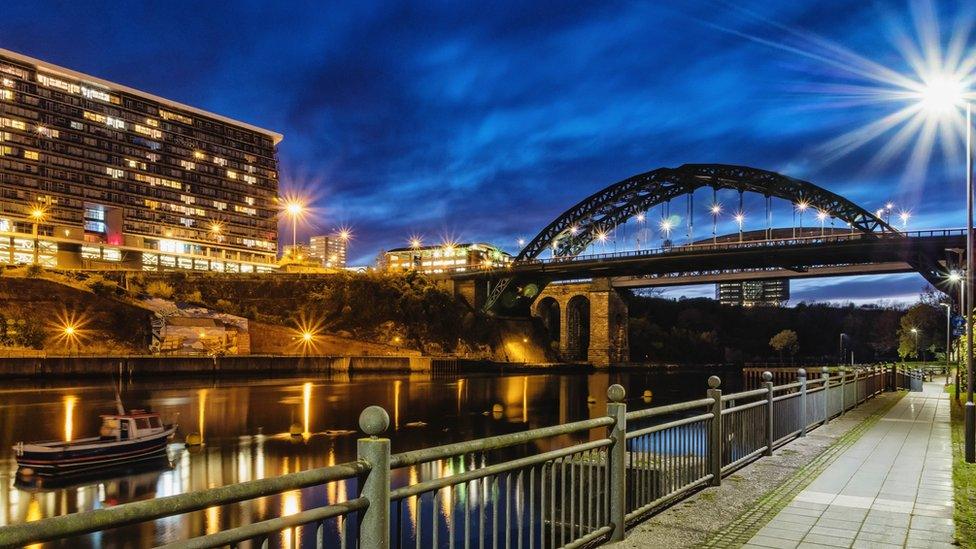
Sunderland City Council said it took 270 officer hours to apply for one levelling up fund
The study gave an example from Sunderland City Council which reported it took 270 hours of office time to apply for a single fund.
"The Whitehall failure to understand the complexity of delivering and implementing projects on the ground in local communities remains problematic," the report said.
It found £100m had been granted to North East projects from the first round of the Levelling Up Fund, 6% of the £1.7bn allocated nationally.
These included:
£20m for Bishop Auckland for the development of the Locomotion railway museum in Shildon and the Stockton and Darlington Railway line, the reopening of Whorlton Bridge and a new bypass
£19.8m for a new sports and wellbeing centre in West Denton, Newcastle
£20m for Newcastle city centre, including the restoration of the Grainger Market, pedestrianisation of Blackett Street and enhancement of Old Eldon Square into a "multi-functional civic space"
£20m for a new "large-scale" exhibition centre Preston Park, Stockton, and new public toilets, town hall refurbishment and cycle routes in Yarm
£20m for an eco-housing project in Sunderland including a £9m factory-built-home training centre and £11m for the development of "sustainable communities" in Sunnyside and Riverside
But, the report said, applications could only be made for funding for construction projects which ruled out many other schemes which could have benefitted local communities.
It said: "Even though many challenges affecting communities have long-standing societal underpinnings, the fund required local authorities to submit proposals focused solely on physical infrastructure projects; projects that can be used as evidence of levelling up."
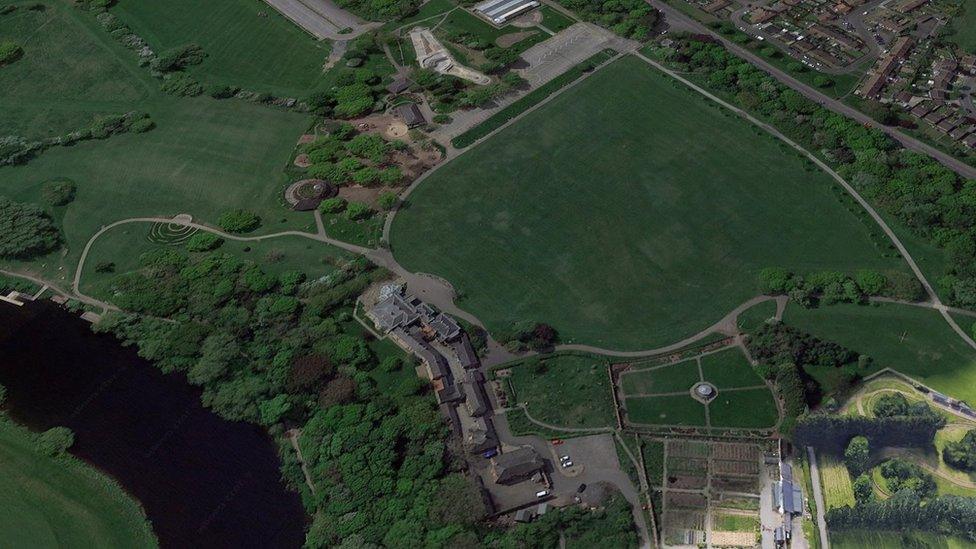
A new exhibition centre is being planned for Preston Park in Stockton-on-Tees
The authors also claimed grants were "frequently insufficient" and needed to be "matched with other funds to address the socioeconomic needs of the area".
The Community Fund has seen £8m given to North East projects, 4% of the £203m pot.
In this case, the study found there were "tight deadlines for spending and the lack of focus on community and social enterprise development".
Some £172m was awarded for seven North East projects from the Towns Fund, including schemes in Hartlepool, Blyth, Darlington, Middlesbrough, Thornaby, Redcar and Bishop Auckland, but the authors said there had been criticism over the selection process with a lack of local input.
The Future High Street Fund saw a further £98.5m granted in the North East (11.6% of the £830m pot) which was "much higher" than other wealthier areas which the authors said "makes sense from the perspective of levelling up the country" but, they added, a "similar pattern has not been achieved with the main levelling up funds".
In February, the government's Levelling Up White Paper identified 12 missions to be achieved by 2030.
Those the report's authors deemed to be "off track" in the region included:
A rise in pay, employment and productivity
Bringing public transport connectivity closer to that of London, with improved services, simpler fares and integrated ticketing
Introducing gigabit-capable broadband and 4G coverage, with 5G available for the majority of the population
"Significantly" increasing the numbers of people completing high-quality skills training
Improving well-being closing the gap between top performing and other areas
Enabling regional devolution deals with powers at or approaching the highest level of devolution and a simplified, long-term funding settlement
The study concluded: "Despite Levelling Up being a focal point of the Conservative party's 2019 election campaign, it is evident that it has only just reached the stage of moving beyond a slogan.
"The increasing inequity between the North East and the rest of the UK is widening. The region is in danger of slipping further behind, as the economic and social positions continue to deteriorate at alarming rates."
'Thousands of jobs'
The report said a "major review" should be held in 2023 with more input from North East authorities.
A spokesman for the Department of Levelling Up, Housing and Communities, said: "We are making progress across the North East with thousands of highly skilled jobs being created through Teesside.
"Freeports are in talks to bring investment zones to the region to deliver growth, jobs and homes.
"The levelling up fund has so far provided £37 per head in the North East, the second highest for an English region.
"Through our towns fund, we have supported projects such as refurbishing derelict properties in Hartlepool and a new skills facilities in Blyth.
"There are already two devolution deals across the North East and we are rapidly progressing negotiations to announce more of these deals in due course."

Follow BBC North East & Cumbria on Twitter, external, Facebook, external and Instagram, external. Send your story ideas to northeastandcumbria@bbc.co.uk, external.
- Published30 September 2022
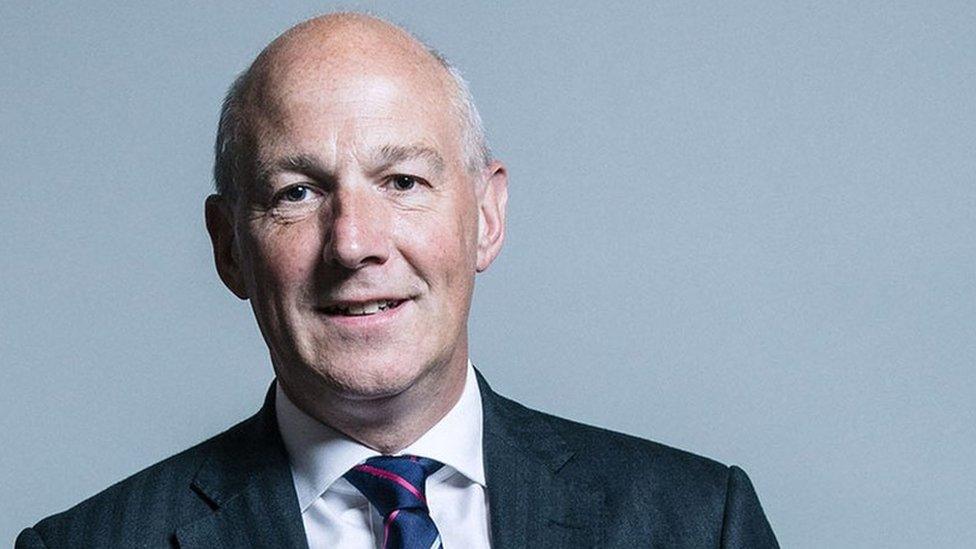
- Published26 September 2022
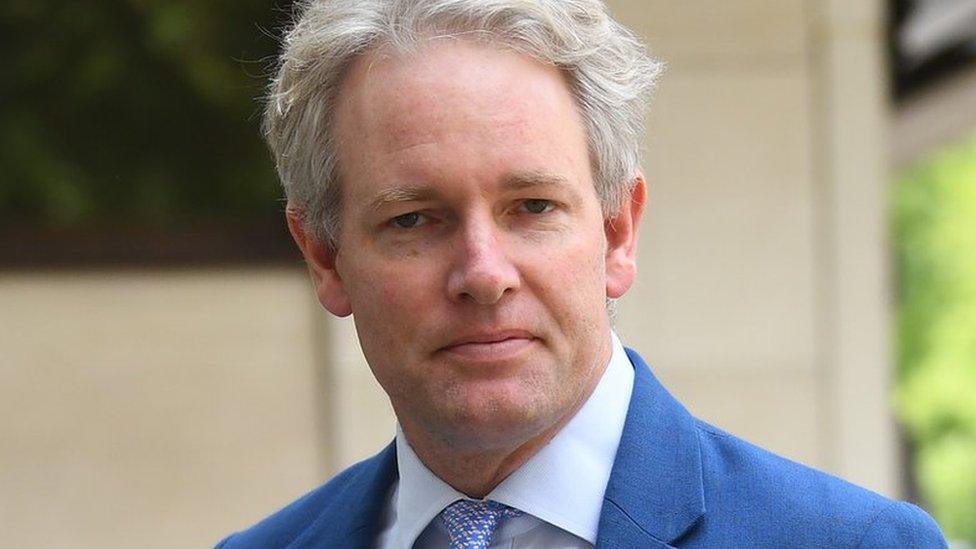
- Published30 August 2022
